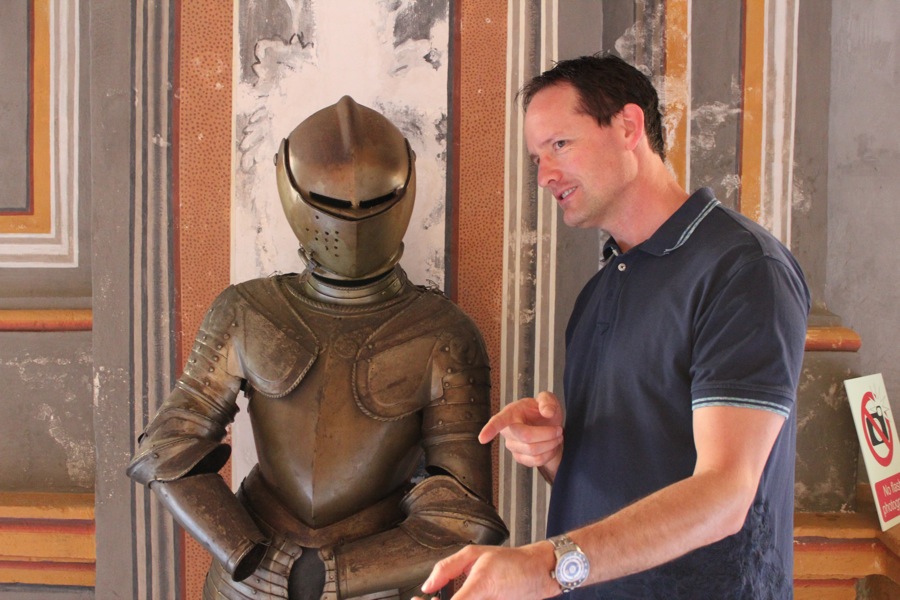
I drove back to the barbershop in Zejtun a month after we left the village. The door rattled aside on its warped metal track. The chihuahua behind the counter barked and glared. An old lady reclined in a chair like the sheeted dead.
I smiled and said hello to the receptionist, and she smiled too. But when the barber turned to look at me, he staggered back a step and froze.
The smile faded slowly from the lower portion of his face as confusion crept into his eyes. I froze too. We were in danger of remaining that way indefinitely, stuck in some sort of stasis, when he dropped his scissors and broke the spell.
“What are you doing here…?”
“I need a haircut…?” Why was he looking at me as though I were Lazarus?
“But… but… you moved to Mosta!”
Zejtun was 20 minutes away, sometimes a little longer in traffic. It was as though he believed the centre of this tiny island to be another planet entirely. Given the isolation of those villages over the centuries and their innate suspicion of one another, I guess it sort of was.
I drove down our old street on our way out of town so we could look at the palazzo. I saw an old man limping towards us, and both his pace and the slow manner with which he moved his head back and forth reminded me of a contented tortoise.
“There’s Francis,” I said, stepping on the brake and putting the window down. “We didn’t get a chance to see you before we left…” I said as he leaned on the side of the car.
“I know!” he said, cutting in. “You moved to Mosta! I heard.”
I remembered something Dr. Zee had told me at our very first meeting. “Everyone in the village will have known who you were within the first couple days. They’d know where you came from, what you do for a living, and whether or not you’re married.”
And they didn’t just know we’d left Zejtun; they knew exactly where we went.
A dweller in a Maltese village lives under conditions of near-panoptical surveillance. Every purchase is remembered by a shopkeeper who doesn’t just remember what you bought before, but who also knows your parents, your wife, and your ancestors.
You can’t walk to the post office without your movements being tracked and analyzed, not just by those old men loafing on the steps of the church, but by all those eyes peering out of windows from behind stained lace curtains.
I couldn’t see signs that anyone new had moved in to our old house, but several months later I heard from the barber that our beloved palazzo was being rented by 8 young online gambling company employees from Scandinavia.
“They throw parties all the time,” he told me. “People are always complaining about the noise.”
No mean feat in a culture where silence felt like an abnormality to be feared.
The next time I saw him, he broached the subject as soon as I sat down.
“Your old house…” he began. “I heard they’re getting evicted. They wrecked the place with all their parties.”
My phone rang as I was walking back to the car. It was my wife. “I just talked to Marian…” she said.
“Yes yes yes,” I said, cutting in Maltese-style. “The guys in the palazzo are getting evicted.”
There was a long pause. “How did you know?”
“They were partying all the time, and the neighbours hated them.” I shrugged, and it carried over the line. “Everyone knows. Lorry told me.”
I found the speed of the local bush telegraph comical, but this gossip network had a dark side, too.
Watchfulness was a form of social control. Conformity was enforced by neighbours, and as in any authoritarian situation, they got ahead by snitching. Telling the teacher. Ratting out their neighbour to the priest or the Inquisition. Smacking down originality by making those who dared to be different the subject of malicious slander.
The ethnographical literature confirms this. The anthropologist Jon Mitchell spent time with a Valletta family when researching his book Ambivalent Europeans. “I was constantly being told by well-meaning acquaintances that under no circumstances should I let them know about my private affairs,” he wrote. “To do so would be dangerous, even with particularly close friends.”
“Problems of a personal nature should be discussed with either family members or a priest,” he continued. “Under no circumstances should they be made public amongst a group of male friends. To do so would be to invite its abuse in local gossip.”
An informant summed it up best when he told Mitchell, “Not everyone who strokes you, loves you. Be careful.” Meaning, “Although people might seem to be generous or friendly, trusting them because of this is a mistake.”
